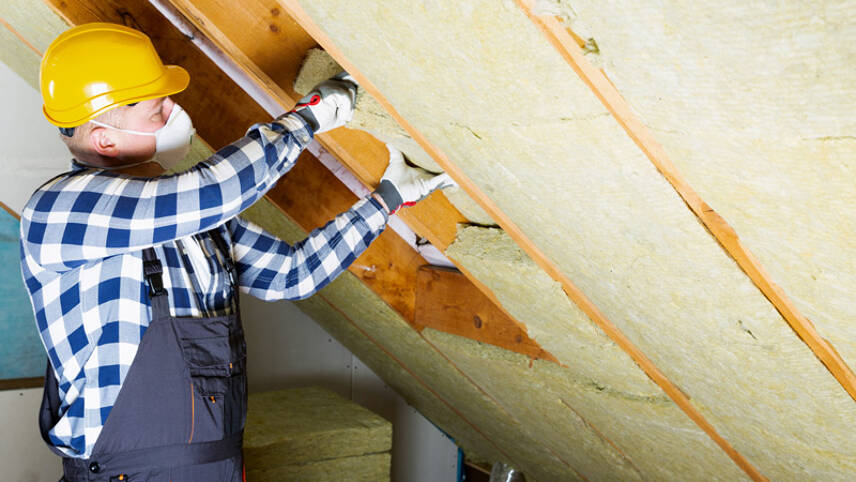Register for free and continue reading
Join our growing army of changemakers and get unlimited access to our premium content

15 million homes will need energy efficiency improvements to meet the Government's 2035 target
CCC chairman Lord Deben has today (9 November) penned a letter on “reducing energy demand in buildings in response to the energy price crisis” to Hunt, who was appointed by Liz Truss and kept on by Rishi Sunak. Hunt is expected to deliver his first fiscal statement next week.
The letter urges the Treasury to consider new funding for energy efficiency improvements – both in the form of a public information campaign and new funding for improving the fabric of buildings. Truss reportedly threw out a proposal for a public information campaign and, on fabric, the Government has not put forward a replacement for the botched £1bn Green Homes Grant.
Deben writes: “ Regrettably, it is too late to introduce new policies to achieve widespread improvements to the fabric of buildings for this winter. But there are many small changes which can still make a meaningful contribution to reducing energy demand.”
He recommends that the government updates its energy advice service to provide advice on “simple energy saving measures” as well as the information on retrofitting currently on offer. Advice, he writes, should contain predicted savings on the basis of up-to-date energy prices. The Government could – and should – also update its ‘Help for Households’ communications campaign, through which homes are encouraged to claim the money towards bills they are entitled to this weekend.
Deben argues that each home could save “several hundreds of pounds” this winter through simple behaviour changes. He also argues that there could be “hundreds of millions of pounds” of savings for the Government.
Communications, the letter continues, should be built upon with a “concerted push” to improve insulation installation rates in the coming years. It states that some 60% of UK homes could be insulated for £1,100 or less and sets out that cavity wall insulation is “high value-for-money” and comes with other co-benefits in terms of public health, wellbeing, social sustainability and reduced emissions.
Deben argues the case for unlocking private finance to help support national retrofitting efforts at this time when public finances are squeezed.
The letter argues that any future national retrofit scheme or similar should come with more long-term certainty than the Green Homes Grant. This £1bn scheme allocated around 10% of its funding, with the Government stating that there were not enough professionals trained to complete the works which would be eligible for funding.
Deben writes: “The Government needs to signal its funding intentions beyond spending review periods and indicate what will replace public funding once it is phased out, to provide the necessary certainty.
“There currently aren’t enough skilled workers to retrofit millions of homes each year. New programmes are needed to support retraining and new entrants into the construction industry in general as well as into specialised occupations. “
Deben closes the letter by stating that he would like to discuss the issue of energy efficiency further in the near future.
The CCC’s most recent annual report to Parliament warned that progress towards net-zero has been “scant”. Building energy efficiency and decarbonising agriculture were stated to be the weakest areas, with “major failures in delivery programmes”.
A global priority
In related news, energy technologies company Danfoss has published a whitepaper on energy efficiency, stating that the global Paris Agreement temperature pathways will be impossible to align with without much more rapid and joined-up action to improve energy efficiency as a green policy priority.
The whitepaper reiterates some of the key messages of the International Energy Agency’s (IEA) annual analyses on energy efficiency. This year’s edition stated that energy efficiency improvements could deliver one-third of the emissions reductions needed this decade to lay the foundations for net-zero by 2050, but warned that this is not guaranteed.
Cutting these emissions would require a 5% reduction in global final energy consumption between 2019 and 2030, yet an 18% increase is forecasted. Also required would be a 4% improvement in energy intensity annually in the 2020s, but the improvement was just 1.9% in 2021 and 0.5% in 2020.
Danfoss states that, to date, we have not been able to decouple final energy consumption growth from economic and population growth. As such, its whitepaper warns, renewables are not being deployed rapidly enough to keep pace with increasing energy consumption – and most likely will not be in the years to come. This means we need to use energy far more efficiently, especially as more energy is needed for climate adaptation efforts such as cooling.
The firm’s whitepaper emphasizes that energy efficiency solutions are cost-effective with good economic returns and that they can be deployed far more rapidly than new clean energy generation. It states that, for every dollar spent on energy efficiency this decade, at least two dollars of spending on energy supply can be avoided. It also emphasizes the IEA’s previous claims that global household energy bills would be $650bn lower annually in 2030 under its net-zero scenario.
Danfoss has noted that, while the EU is implementing “encouraging” policy measures to improve energy efficiency, most other nations are failing to bring forward new and significant energy efficiency measures in the near term.
“In short, if we don’t curb our demand for energy, the build-out of renewables will not be even near sufficient,” summarised Danfoss’s chief executive Kim Fausing. “We simply will not have enough green energy to meet the demands of a growing population. One overlooked fact is that renewable energy comes in peaks and is used in peaks. Energy efficiency allows us to shave these peaks, for instance by reusing the excess heat from industries, supermarkets and data centers to heat our homes. Energy efficiency is fundamental for a full electrification of our society.”


Please login or Register to leave a comment.